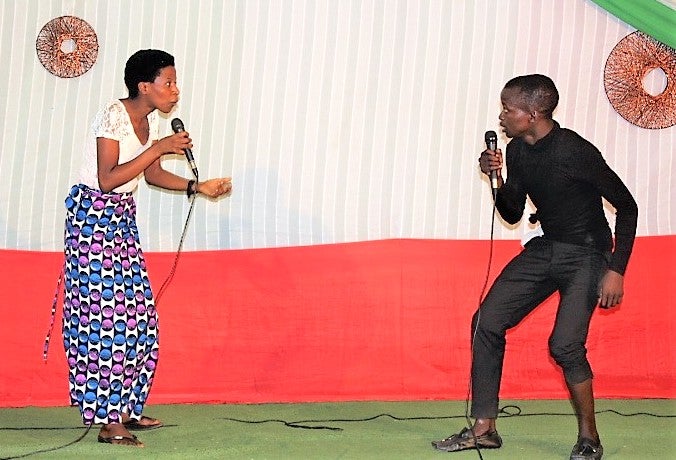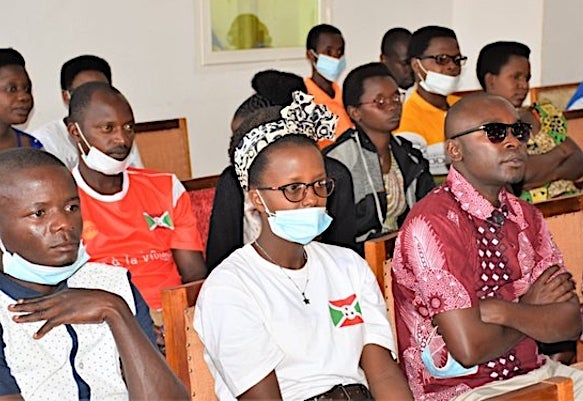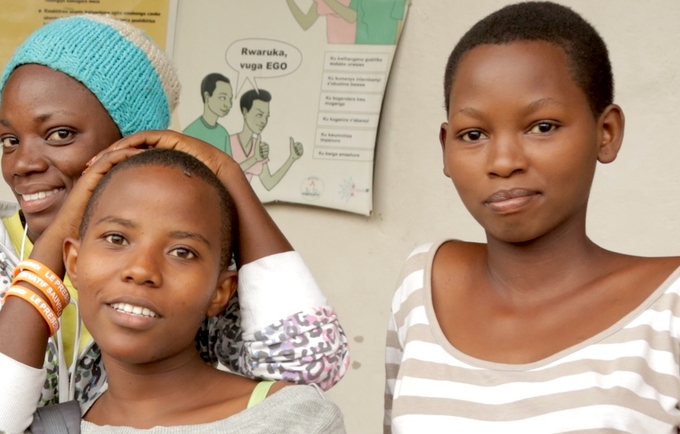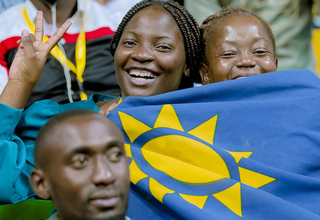GITEGA PROVINCE, Burundi—Rose Iranzi*, 24, from Mutimbuzi commune, was rarely at home. Nor did she do any housework. Instead she spent her time with her peers, looking for opportunities to consume alcohol. Her family considered her beyond help.
When she heard other young people speaking out about how their lives had changed through Community-Based Prevention of Violence and Social Cohesion using Innovation for Youth, a project run by COPED with support from UNFPA, the United Nations sexual and reproductive health agency, she was touched by their stories. She began to feel an urge to alter her own behaviour.
“It wasn't easy for me to leave my badly behaved friends behind, but I stuck with it,” she said.
It wasn't easy for me to leave my badly behaved friends behind.

She surprised her family by attending the project training sessions and didn’t want to miss any because she felt she was learning and gaining opportunities. From an uncommitted member of the scouting movement, she joined the leadership of her Scouts group and became involved in mobilizing resources.
She also found a way to save money to kickstart her future as an entrepreneur.
“I am one of the leaders of our Solidarity Group. We have a collective hairdressing salon and I also have another small business of my own. I am buying a bike that will bring in a daily payment of 1,000 to 1,500 francs," she said.
This group discusses social issues and saves money together each week. After a year of earning accumulated interest, they share the total savings among themselves and use it to start small businesses. It has enabled her to start a new life.
I don't beg anymore. Instead, I can help out other people with financial difficulties.
“I don't beg anymore. Instead, I can help out other people with financial difficulties,” she said with satisfaction.
Changing young people’s lives
To assess the results of the COPED project, UNFPA in collaboration with COPED organized a meeting of young people who had benefited directly from the intervention.
Ten young agents of change per commune, accompanied by advisors in charge of communal development, were invited to attend a forum held in August in Gitega Province. In total, 70 young people and 7 administrative officials from the intervention communes participated.
The change agents described the changes they had made in their lives as a result of COPED. At the individual level, all 21 young agents of change said that the project had ended their delinquency.
From brutal thug to mediator of peace

John Nizere*, 27, from Gisozi commune, was feared for robbing and terrorizing his community. His brutality and aggression attracted the attention of the commune authority and the police, who met to decide on his case.
But with COPED’s intervention and after attending the training sessions, he too changed his behaviour. He has chosen instead to engage in activities that build economic empowerment.
Like him, the majority of these youngsters are now able meet their own basic needs. At the community level, they have become role models, peacemakers and agents of youth empowerment. They have been empowered to mediate in conflict situations in their communities and to mobilize youth in solidarity groups.
Today, they are proud of their new, positive image in their communities.
I have asked for forgiveness from all those to whom I have caused harm.
Said Mr. Nizere: “I no longer provoke fights. I am well integrated in solidarity groups where I work assiduously. I also participate in conflict resolution sessions with other peace mediators in our community. I have even asked for forgiveness from all those to whom I have caused harm.”
Administrative officials who attended the workshop said that the changes observed among the young people who benefited from the intervention were real and observable. They adopt model behaviour in terms of economic emancipation as well as complying with social standards. Once they have completed their training, they commit to integrating the course objectives in their activities going forward. In this, they seek the support and supervision of their respective administrations. And because of the success they are now making of their lives, they recommended that mechanisms be developed for similar interventions in other communes to help more young people who are struggling.
* Names changed to protect their identities.


